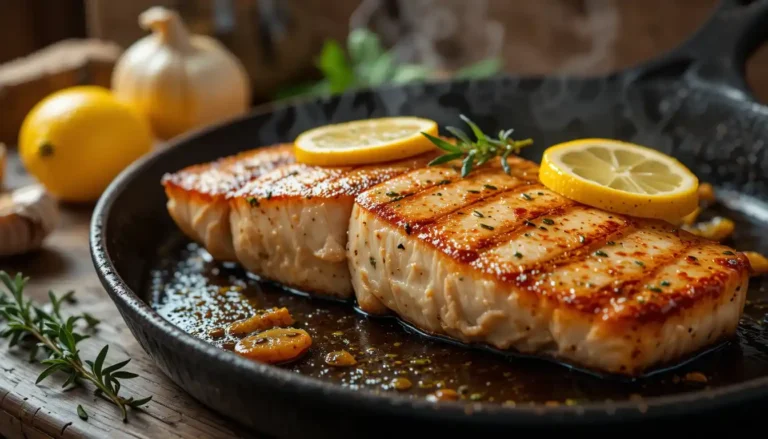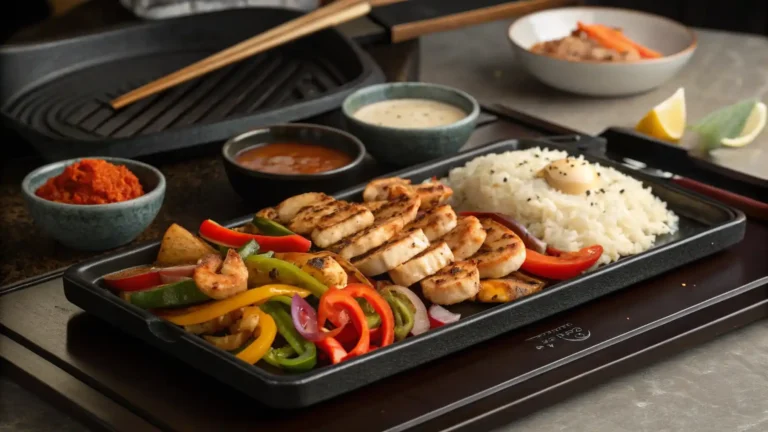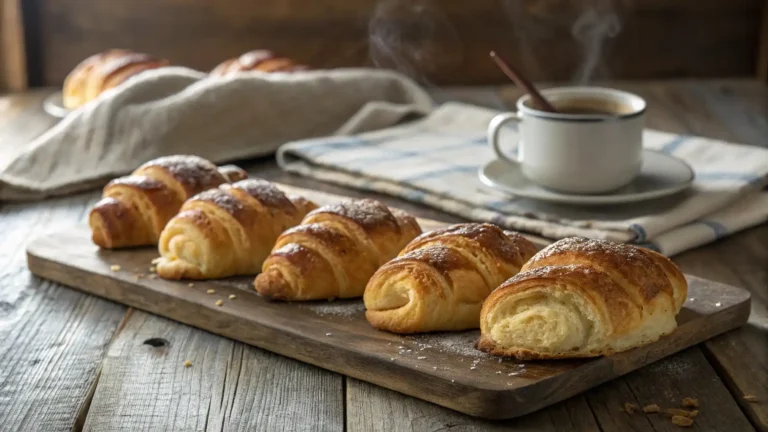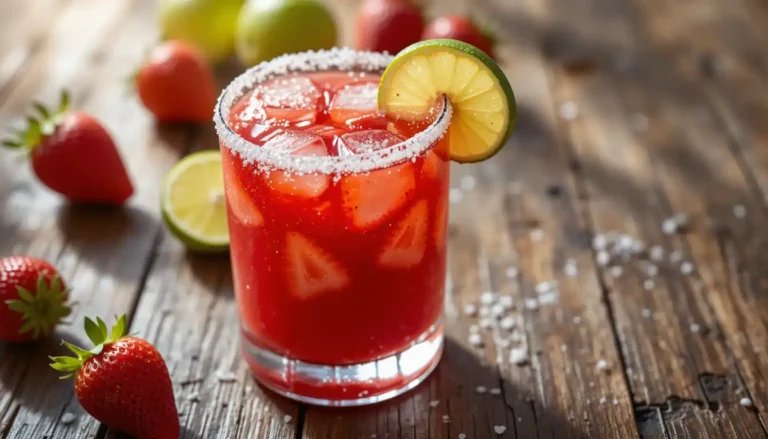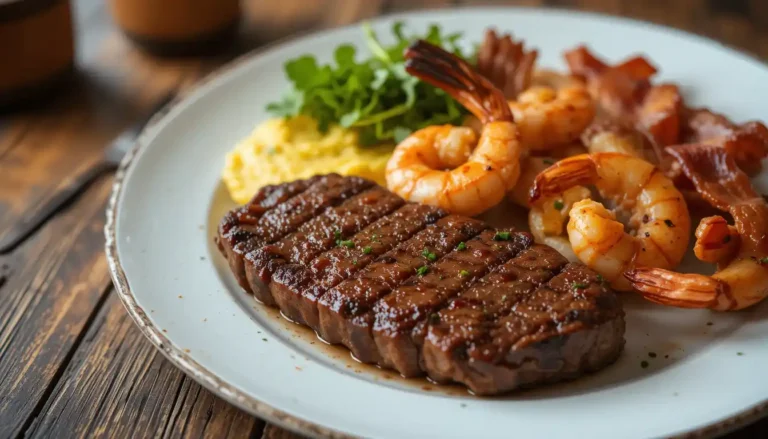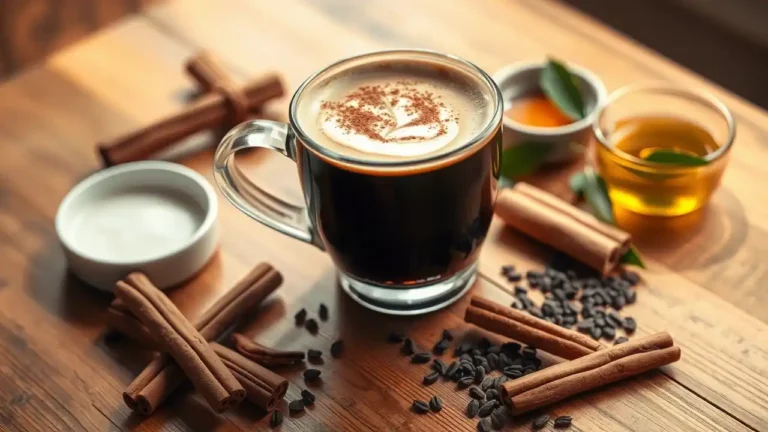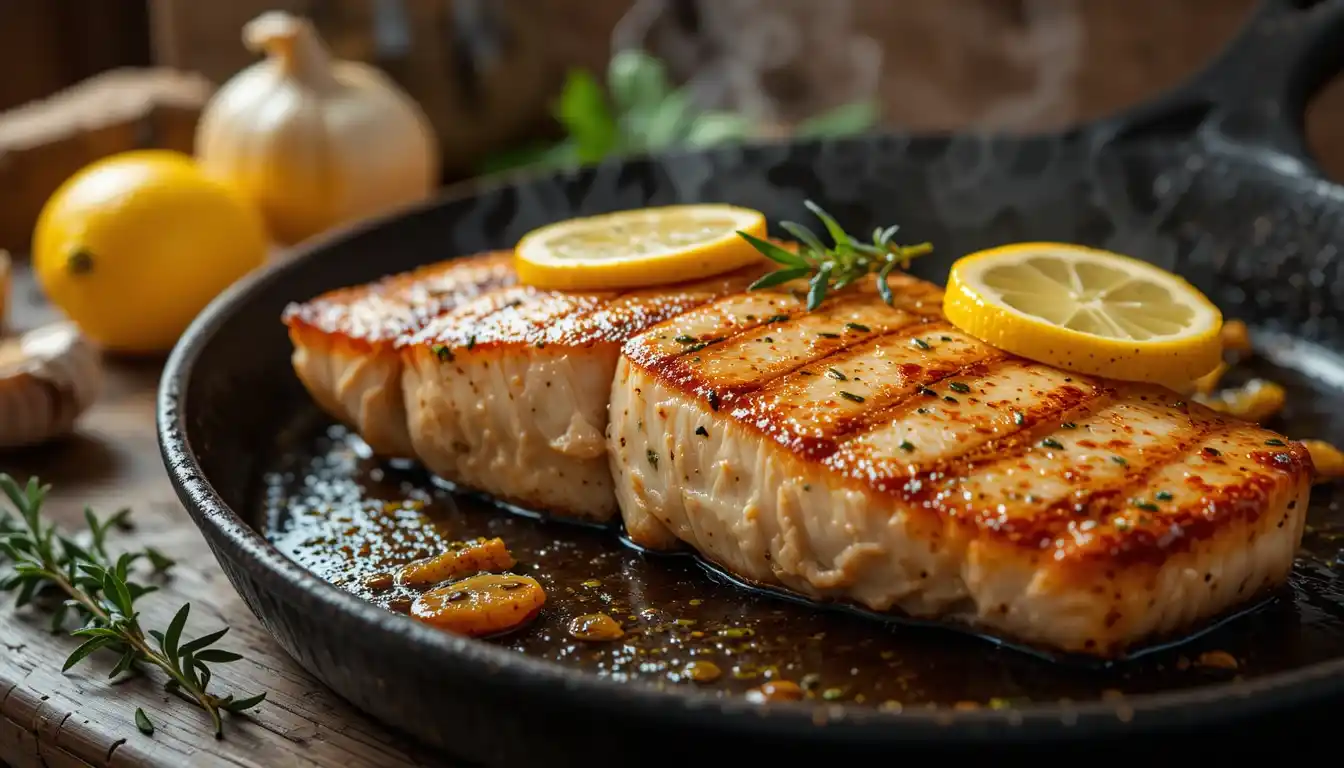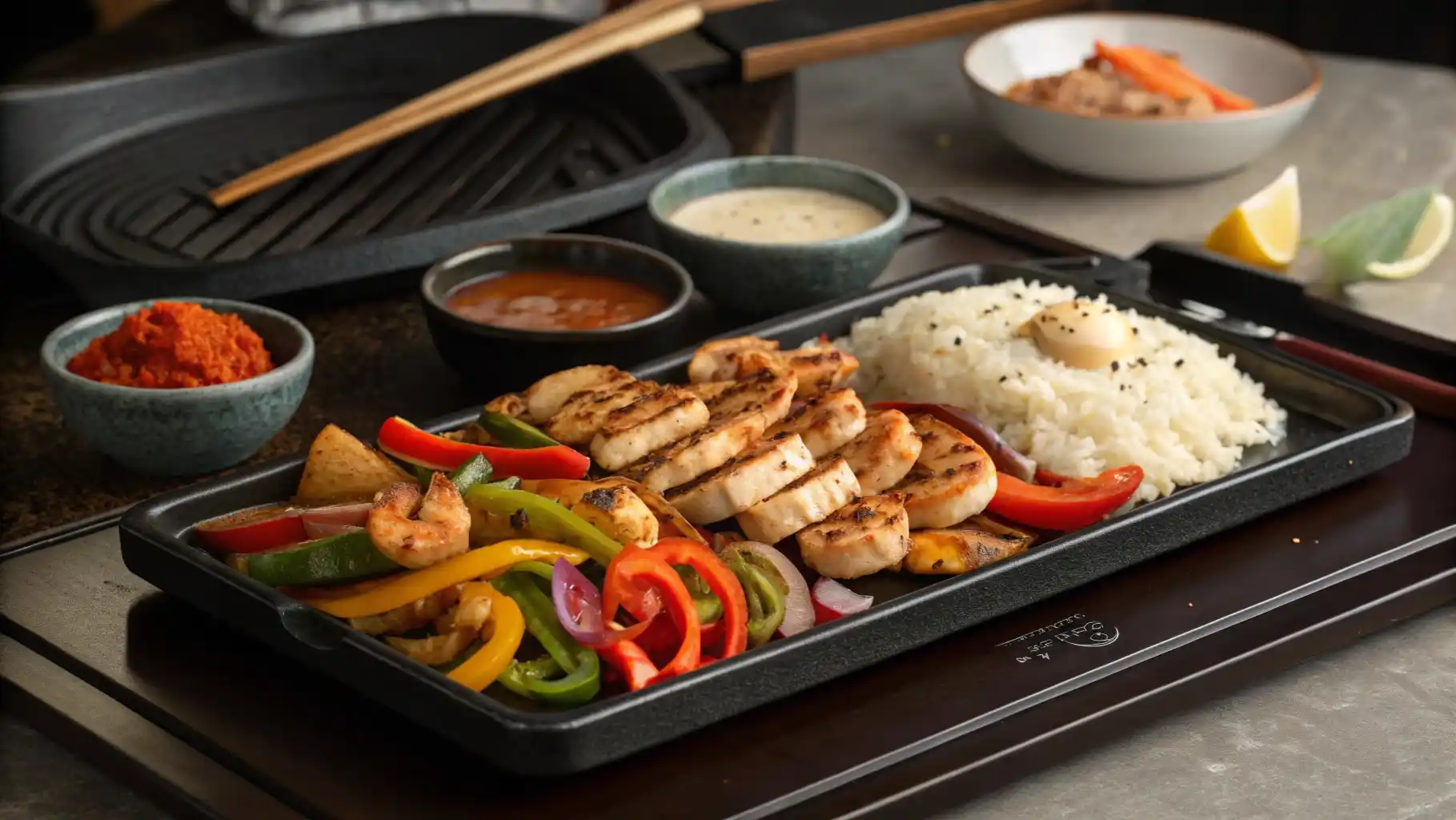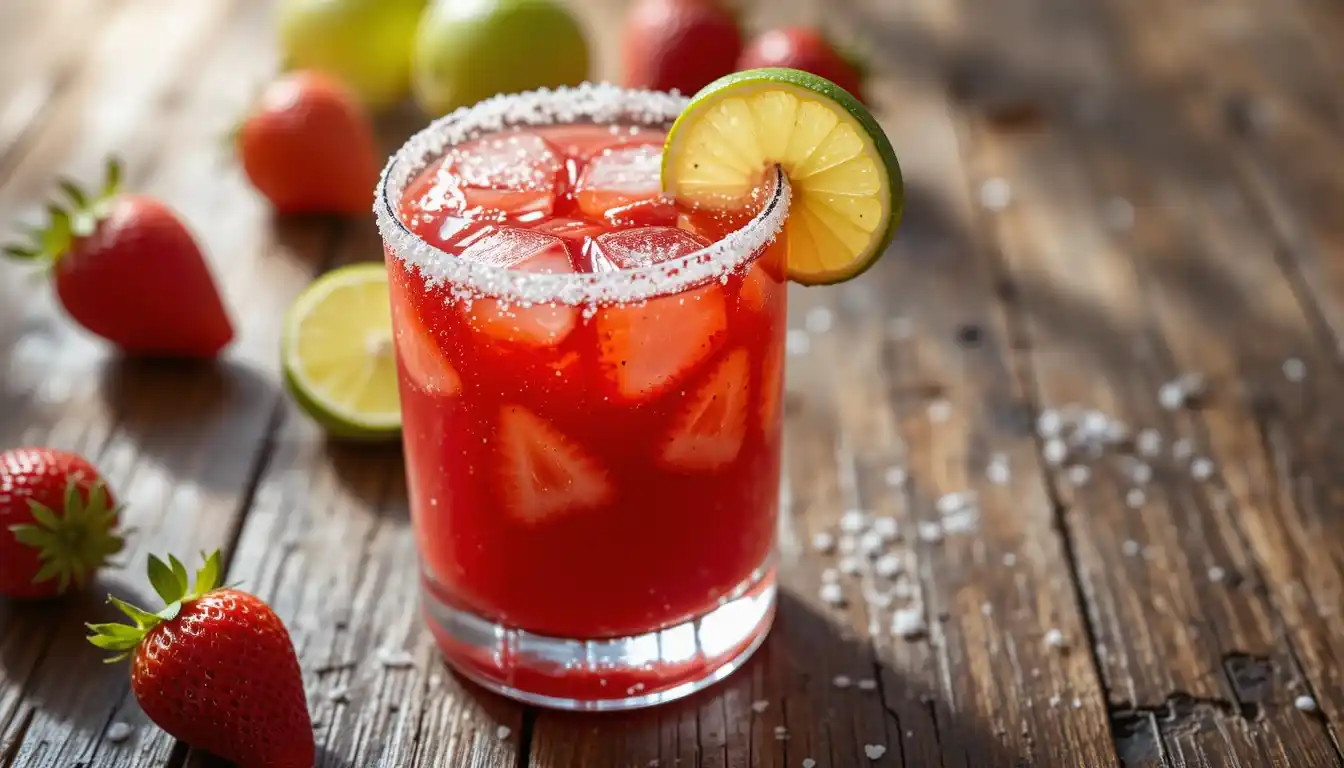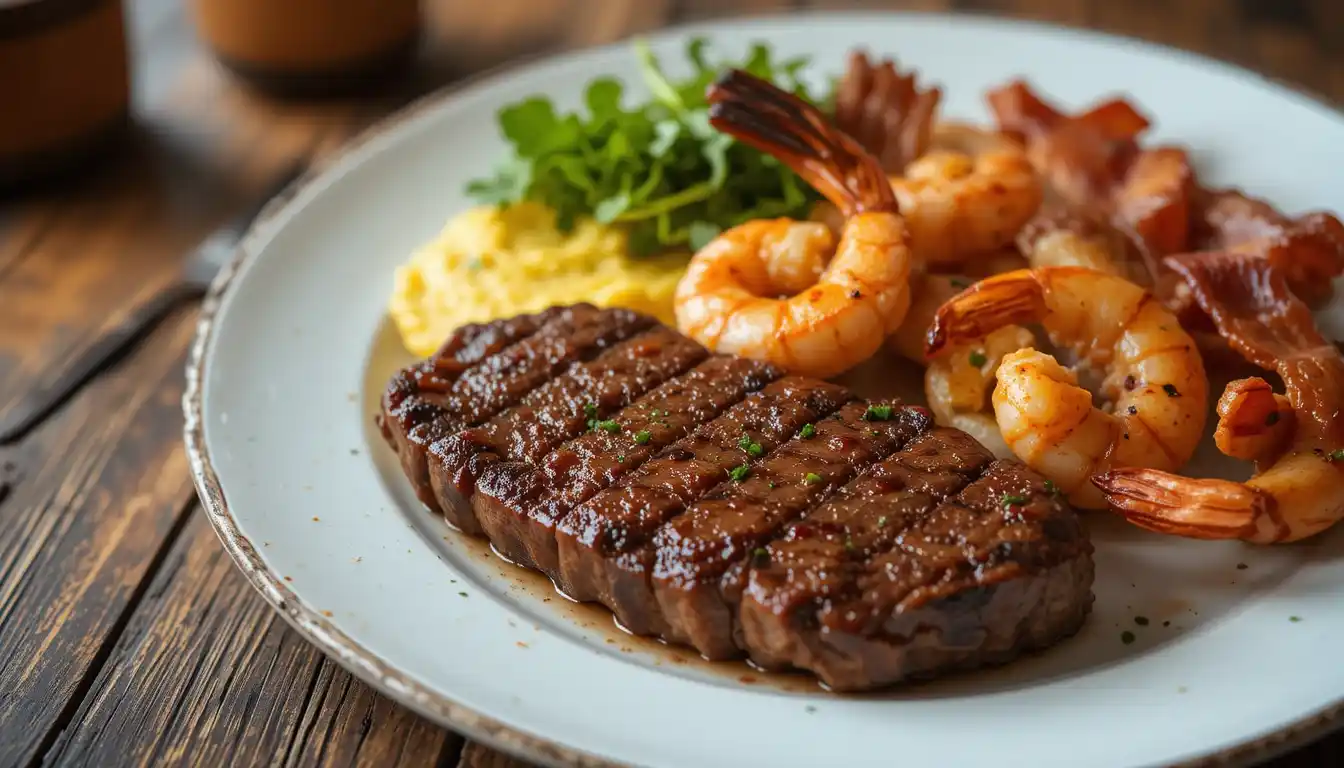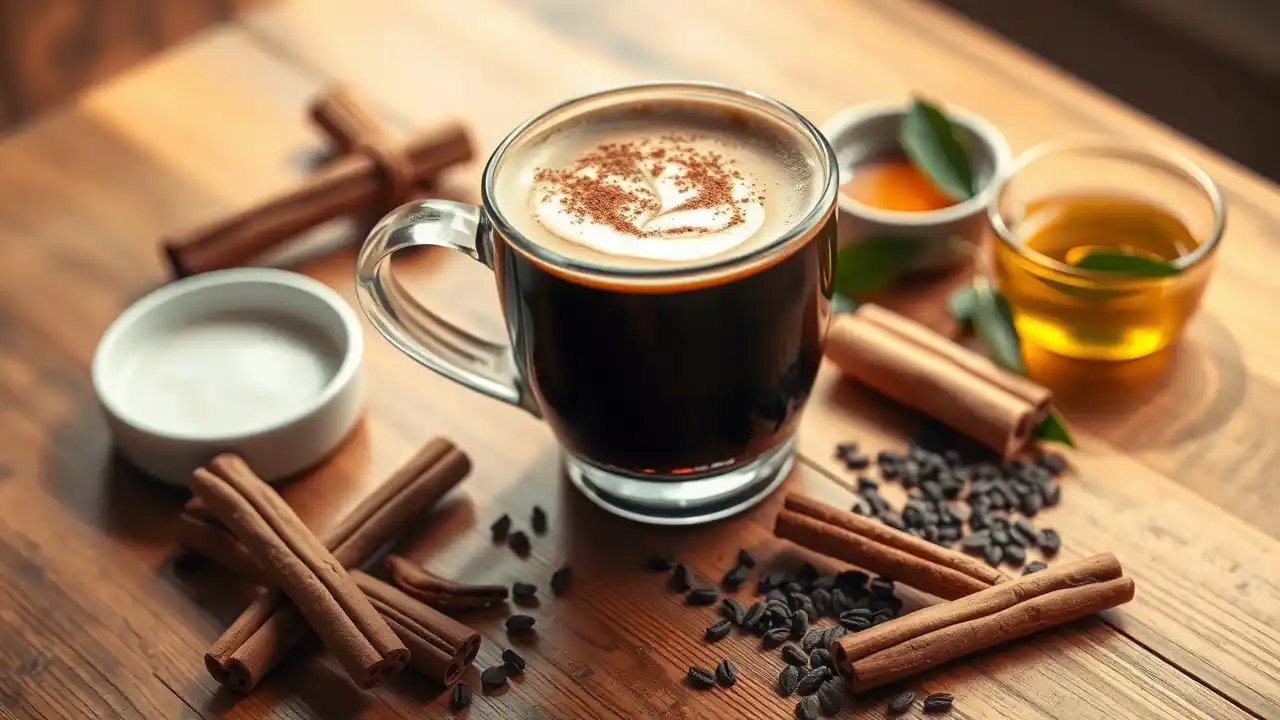Cooking on a Blackstone griddle is one of the best ways to experience the joy of outdoor cooking. The sizzling sound of food hitting the hot surface, the mouth-watering aroma, and the ability to cook up everything from breakfast to dinner in no time—it’s truly a cooking experience like no other. But here’s the thing: To get the best results, you need to choose the right oil for your Blackstone. You may have wondered, what oil is best for Blackstone?
Choosing the right oil can make all the difference in the world. Whether you’re grilling juicy steaks, flipping eggs, or sautéing vegetables, the type of oil you use can affect the flavor, texture, and overall outcome of your dish. Not only does the right oil enhance the taste, but it also helps maintain your griddle, preventing rust and ensuring that it stays in tip-top shape. In this guide, we’ll walk you through everything you need to know about selecting the best oil for your Blackstone griddle, as well as provide some delicious recipes and maintenance tips.
Why Choosing the Right Oil for Your Blackstone Matters
When you fire up your Blackstone griddle, the type of oil you use plays a crucial role in both the cooking process and the maintenance of your griddle. Here’s why:
- Cooking Performance: Different oils have different smoke points, which is the temperature at which oil starts to burn and break down. Choosing the right oil ensures you can cook at the ideal temperature for whatever dish you’re preparing without worrying about burning the oil or compromising the flavor.
- Flavor Profile: The oil you use can enhance or even transform the flavor of your food. Some oils are more neutral, while others add their own unique flavor that complements certain dishes.
- Griddle Maintenance: Blackstone griddles need to be seasoned with oil to maintain a non-stick surface and protect against rust. The right oil can also make cleaning up easier and help preserve your griddle’s longevity.
With these factors in mind, let’s dive into which oils are best suited for cooking on a Blackstone.
What Oil is Best for Blackstone Griddles? A Detailed Breakdown
Choosing the right oil for your Blackstone griddle depends on a few key factors: your recipe, the temperature at which you’ll be cooking, and the flavor you’re after. Here’s a breakdown of some popular oils and their attributes.
| Oil Type | Smoke Point | Best For | Flavor | Pros | Cons |
|---|---|---|---|---|---|
| Canola Oil | 400°F | Grilling, stir-frying, and sautéing | Neutral | High smoke point, neutral flavor | Not ideal for flavor infusion |
| Vegetable Oil | 400-450°F | General cooking, eggs, burgers | Neutral | Widely available, affordable | May have GMO concerns |
| Peanut Oil | 450°F | High-heat cooking, stir-frying | Mild, nutty | Great for high heat, adds flavor | Allergen risk |
| Avocado Oil | 520°F | Grilling, sautéing, searing | Slightly grassy, mild | Extremely high smoke point | Expensive |
| Olive Oil | 375°F | Grilling, frying, finishing dishes | Fruity, bold | Heart-healthy, flavor-packed | Lower smoke point |
Canola Oil
Best For: Versatile cooking like stir-frying, grilling, and sautéing.
Flavor: Canola oil has a neutral flavor, so it won’t interfere with the natural taste of your food.
Why It’s Ideal: Its high smoke point (400°F) makes it perfect for general cooking on a Blackstone. Canola oil also helps prevent food from sticking to the griddle, making cleanup easier.
Vegetable Oil
Best For: General-purpose cooking, including eggs, burgers, and pancakes.
Flavor: Like canola oil, vegetable oil is neutral and won’t alter the flavor of your food.
Why It’s Ideal: Vegetable oil is commonly available, affordable, and has a high smoke point (400-450°F). It works well for most dishes you’ll cook on your Blackstone.
Peanut Oil
Best For: High-heat cooking like stir-frying and grilling.
Flavor: Adds a mild, nutty flavor to your dishes.
Why It’s Ideal: Peanut oil has a high smoke point (450°F), making it perfect for cooking at high temperatures. It’s also great for dishes like stir-fried vegetables or crispy chicken.
Avocado Oil
Best For: Grilling, sautéing, and searing at high temperatures.
Flavor: Avocado oil has a slight grassy, mild flavor.
Why It’s Ideal: With an extremely high smoke point (520°F), avocado oil is perfect for searing meats and cooking at very high temperatures. Though it’s a bit more expensive, it offers great versatility and health benefits due to its high levels of healthy fats.
Olive Oil
Best For: Grilling, frying, and finishing dishes.
Flavor: Olive oil is bold and fruity, which can add a distinct flavor to your meals.
Why It’s Ideal: While olive oil has a lower smoke point (375°F), it’s still great for grilling or frying on a Blackstone at moderate heat. Its flavor makes it perfect for finishing dishes like grilled vegetables or meats.
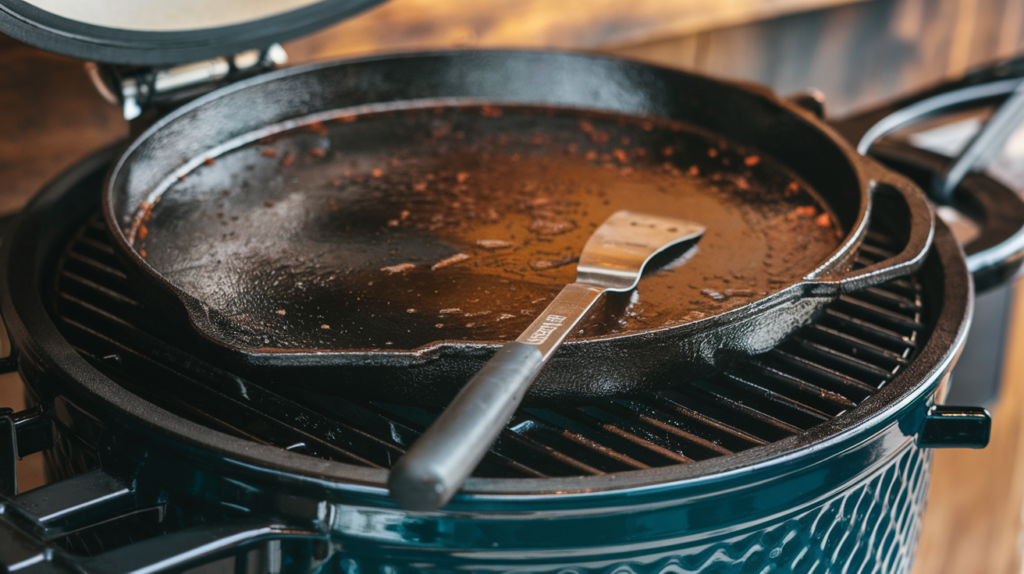
The Importance of Seasoning Your Blackstone Griddle with Oil
Once you’ve chosen the best oil for your cooking needs, you’ll want to ensure your Blackstone griddle is properly seasoned. Seasoning isn’t just for flavor—it’s a crucial step to maintaining your griddle’s surface. Seasoning your Blackstone helps build a non-stick coating and prevents rust, ensuring your griddle performs optimally for years to come.
How to Season Your Blackstone Griddle
- Preheat the Griddle: Turn on your Blackstone and let it heat up on medium-high for about 10-15 minutes.
- Apply Oil: Choose an oil with a high smoke point (like flaxseed, canola, or grapeseed oil). Apply a thin, even layer over the surface using a paper towel or cloth.
- Let It Smoke: Allow the oil to heat and form a layer of smoke. This process will bond the oil to the griddle, creating a protective coating.
- Wipe Off Excess Oil: Once the griddle has cooled, wipe off any excess oil to ensure a smooth, non-stick surface.
Tips for Best Results
- Repeat the process: For optimal seasoning, you may need to repeat the process a few times, especially with a new griddle.
- Use the right amount of oil: Too much oil can lead to a sticky residue, while too little may result in uneven seasoning.
Top Blackstone Recipes That Shine with the Right Oil
Now that you’ve got your griddle seasoned and the right oil on hand, it’s time to get cooking! Here are two delicious recipes that will make the most of your Blackstone griddle and the oils you’ve chosen.
Perfect Blackstone Breakfast Scramble (Using Butter or Olive Oil)
Nothing says “breakfast” like a hearty scramble. The right oil here can make your eggs fluffy and your veggies perfectly cooked.
Ingredients
| Ingredient | Amount |
|---|---|
| Eggs | 4 |
| Bell Peppers | 1/2 cup |
| Onions | 1/4 cup |
| Olive Oil or Butter | 2 tbsp |
Instructions
- Preheat the Griddle: Heat your Blackstone on medium heat.
- Add Oil: Once the griddle is hot, add olive oil or butter and let it melt.
- Sauté Vegetables: Add diced bell peppers and onions. Cook for 2-3 minutes until tender.
- Scramble Eggs: Push the veggies aside and pour in the eggs. Scramble them with a spatula until they’re cooked through.
- Serve: Serve immediately with toast or your favorite breakfast sides.
Grilled Chicken Breast (Using Avocado Oil)
This recipe takes advantage of avocado oil’s high smoke point and mild flavor to create juicy, perfectly grilled chicken breasts.
Ingredients
| Ingredient | Amount |
|---|---|
| Chicken Breast | 2 pieces |
| Avocado Oil | 2 tbsp |
| Lemon Juice | 1 tbsp |
| Garlic Powder | 1 tsp |
Instructions
- Marinate the Chicken: Combine avocado oil, lemon juice, and garlic powder in a bowl. Coat the chicken breasts and let them marinate for 15-20 minutes.
- Preheat the Griddle: Heat the griddle on medium-high.
- Grill the Chicken: Place the marinated chicken breasts on the griddle and cook for about 6-7 minutes per side, or until the internal temperature reaches 165°F.
- Serve: Let the chicken rest for a few minutes before serving with your favorite side dishes.
How to Clean and Maintain Your Blackstone Griddle After Cooking with Oil
After you’ve cooked and enjoyed your meal, it’s important to clean your Blackstone griddle properly to ensure it remains in great condition. Regular cleaning helps prevent oil buildup and rust, keeping your griddle in prime cooking condition.
Step-by-Step Cleaning Guide:
- Let the Griddle Cool: Allow the griddle to cool down slightly, but it should still be warm when you clean it.
- Scrape Off Residue: Use a scraper to remove any leftover food and grease.
- Use Water and Paper Towels: Pour a small amount of water onto the griddle and use a paper towel to wipe off the grime.
- Re-season: After cleaning, apply a thin layer of oil to the griddle to re-season it and protect the surface.
FAQs: What Oil is Best for Blackstone Griddles?
What is the best oil for seasoning a Blackstone griddle?
The best oils for seasoning are those with high smoke points, such as flaxseed oil, canola oil, or grapeseed oil. These oils form a durable, non-stick surface when applied properly.
Can I use olive oil for cooking on a Blackstone?
Yes, olive oil works great for moderate heat cooking on your Blackstone. However, it has a lower smoke point (375°F), so it’s not ideal for high-heat grilling or searing.
Can I mix oils for Blackstone cooking?
Absolutely! Mixing oils can give you a balance of flavor and smoke point. For example, blending olive oil with avocado oil creates a delicious flavor while still providing a high smoke point for grilling.
Conclusion: The Right Oil, The Right Recipe, The Right Results
Choosing the right oil for your Blackstone griddle isn’t just about cooking—it’s about enhancing your entire griddle experience. From maintaining your griddle to improving the flavors of your meals, the right oil makes all the difference. Now that you know the best oils for your Blackstone, as well as how to season your griddle and cook some amazing recipes, it’s time to fire up your griddle and get cooking.
Share Your Favorite Blackstone Recipes!
What’s your go-to recipe for cooking on a Blackstone? Have you found a favorite oil combination that works wonders? Share your thoughts and recipes with us in the comments below. Let’s spread the joy of Blackstone cooking together!

